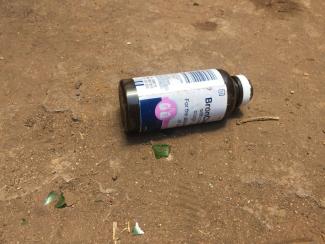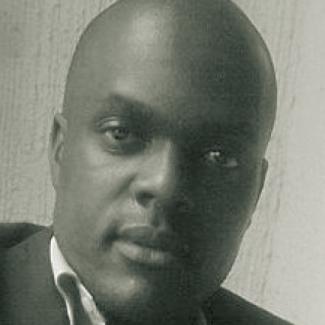Alcoholism
Drowning the unemployment worries

Jerry Nhemachena is 17 years old. He wears an untidy school uniform and carries a bottle with some clear alcoholic liquid in his right hand. A school bag is dangling loosely from his left shoulder. Jerry is obviously drunk as he walks into his school gate. The security guard pays no attention to him. “In principle, we don’t allow drunk pupils into the school yard,” the guard later says. “However, Jerry is dangerous to deal with.” Jerry is one of many young people hooked on alcohol in Zimbabwe.
The Washington Post reported in 2014 that Zimbabwean men and women ranked 6th and 7th respectively as Africa’s top drinkers. According to the beer and soft drink company Delta Beverages, Zimbabweans consumed almost 200 million hectolitres of its lager beer and more than 330 million hectolitres of opaque (millet) beer in 2012. Companies like Delta Beverages make a lot of money.
Various informally produced alcoholic beverages are flooding the streets of cities and towns, moreover. Home-brewed beer, the alcohol content of which is not measured, is a common drink. A popular and very cheap alcoholic drink is one called Tegu-Tegu. Its alcohol content is between 30 % and 40 %.
Cannabis and other illegal drugs are used too. Educationists report that substance abuse is derailing some pupils’ performance in school. “Due to alcoholism and drug abuse, many pupils miss classes,” complains a teacher based in Harare. A stroll on the streets of Harare shows that young people are openly abusing alcohol and drugs, although it is an offence to do so in public.
According to the Zimbabwe Civil Liberties and Drug Network (ZCLDN), approximately 290,000 youths in this Southern African nation are abusing drugs and alcohol. The figure has risen fast from an estimated 85,000 for the years 2009 to 2015. Formed seven years ago, the ZCLDN advocates for strategies to address problems related to drug use in the entire Southern Africa region.
Cough syrup, cannabis and cocaine
BronCleer has become dangerously popular. It is a medical cough syrup which contains alcohol and codeine. As medical practitioner Hilton Hungwe explains, codeine is an opioid that serves as a painkiller. Due to its alcohol content, BronCleer makes people feel extremely drunk “when they down a lot of it in one go,” Hungwe says, “which is why a lot of young people are turning to it.” The streets of Harare are strewn with cough syrup bottles.
BronCleer is manufactured in neighbouring South Africa. According to the Medicines Control Authority of Zimbabwe, BronCleer is not licensed for sale here, even with a prescription. However, it is easily available. A 100 ml bottle of BronCleer costs seven dollars.
Marihuana is known as “mbanje” or “dagga”. The ZCLDN reckons that up to 20 % of the youth use it. Government policy has been ambivalent. It recently legalised growing cannabis for medical reasons, but then back-peddled to prevent drug abuse. Production and possession were previously punishable by up to 12 years in jail, and no one is quite sure what rules apply now and whether the authorities are enforcing them coherently.
With the economy in tatters, Zimbabwe has also become a transit point for drugs such as cocaine, which is smuggled to neighbouring countries like South Africa and Botswana. Some of the substances stay in the country, however, because the people who transport them are paid in kind, not cash. “They start using the drugs themselves,” reports a police officer.
Drugs and alcohol abuse are getting worse in Zimbabwe. The health ministry has reported that currently 57 % of all admissions to psychiatric institutions are attributed to substance abuse. “Of these admissions, over 80 % are in the age group 16 to 40,” explains Evans Masitara, a psychiatrist in private practice. “It is mostly men who are affected.”
“Young and old alcoholics have become common victims of dementia, seizures, liver disease and early death,” says Andrew Muchineripi, a medical doctor in private practice. He adds that cases of drug-induced psychosis have been reported. Suicidal addicts, moreover, are known to overdose on purpose.
People, who abuse alcohol and drugs, tend to be driven by poverty and hopelessness, according to Edgar Mutambu, a psychologist in Harare: “Millions of Zimbabweans are jobless and therefore stressed. They struggle to cope with life’s daily challenges.”
Hapton Ruvangu is one of them. “I completed my university education, but I never found work. I continue to live with my parents,” the 31-year-old man reports. “This is embarrassing because I still depend on them for everything.” About the substance abuse of many young people like him, Ruvangu’s comment is: “Alcohol and drugs help us to forget our challenges.” It does not cost much money to get intoxicated. “Even for one dollar you can get drunk fast”, Ruvangu says.
Zimbabwean parents find the trend worrisome. Letiwe Mpofu, whose children have fallen prey to drug and alcohol abuse, says: “I helped my three sons to make it to university. However, it was exactly there, at university, where they started abusing drugs and alcohol, at a time when they were still studying.” In her eyes, peer pressure and mob psychology are to blame.
Civil-society groups want the government to act. “The government should strictly control the import of alcohol and drugs,” says Claris Madhuku of the Platform for Youth Development. “Our borders have become so porous and corruption is rampant, so that prohibited drinks and drugs are finding their way so easily into our country.”
However, for young students like Jerry Nhemachena, who comes to school intoxicated, that approach is too simple. “Influential people make money from drugs and alcohol that they sell to us, and they also make the laws.” He believes it may “take ages to end drug and alcohol abuse here”.
Jeffrey Moyo is a journalist and lives in Harare, Zimbabwe.
moyojeffrey@gmail.com
Link
Zimbabwe Civil Liberties and Drug Network (ZCLDN):
http://zcldn.org.zw/







